Kantar Covid-19 Barometer Reveals Shifts in Consumer Attitudes, Expectations of Brands
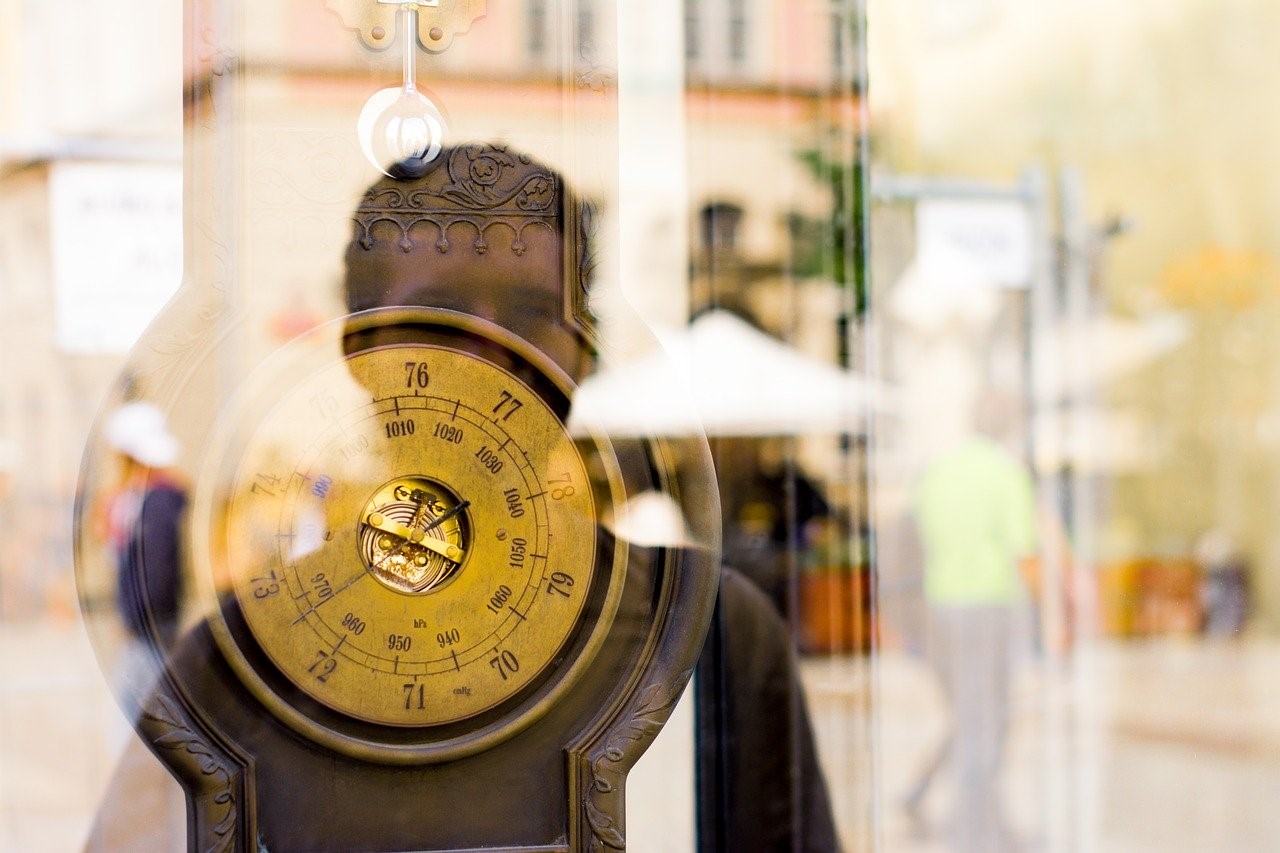
When a client or coworker goes through a hard time, your relationship typically changes. It's business as usual — because it has to be — but your attitude toward that person becomes more sensitive and supportive, and perhaps the jokes and banter you sometimes share becomes less important. As an advertiser, that's what your relationship should be like with your audience as our world adapts to a 'new normal' for the foreseeable future.
Kantar's latest study, "Covid-19 Barometer," examines how the pandemic is influencing consumer attitudes, behavior, and expectations, along with how advertisers should respond to stay relevant in these times. The report is based on a survey of 25,000 consumers across 30 markets.
How Is COVID-19 Changing Media Habits?
1. As countries move deeper into the pandemic, media consumption increases across all in-home platforms.
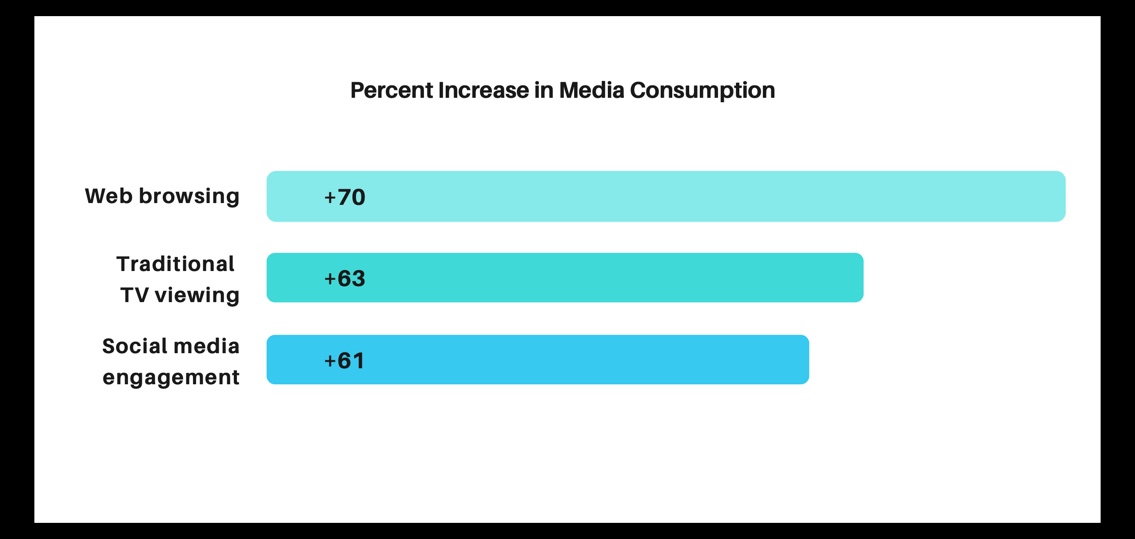
2. People connect more to social media in a world of social distancing.
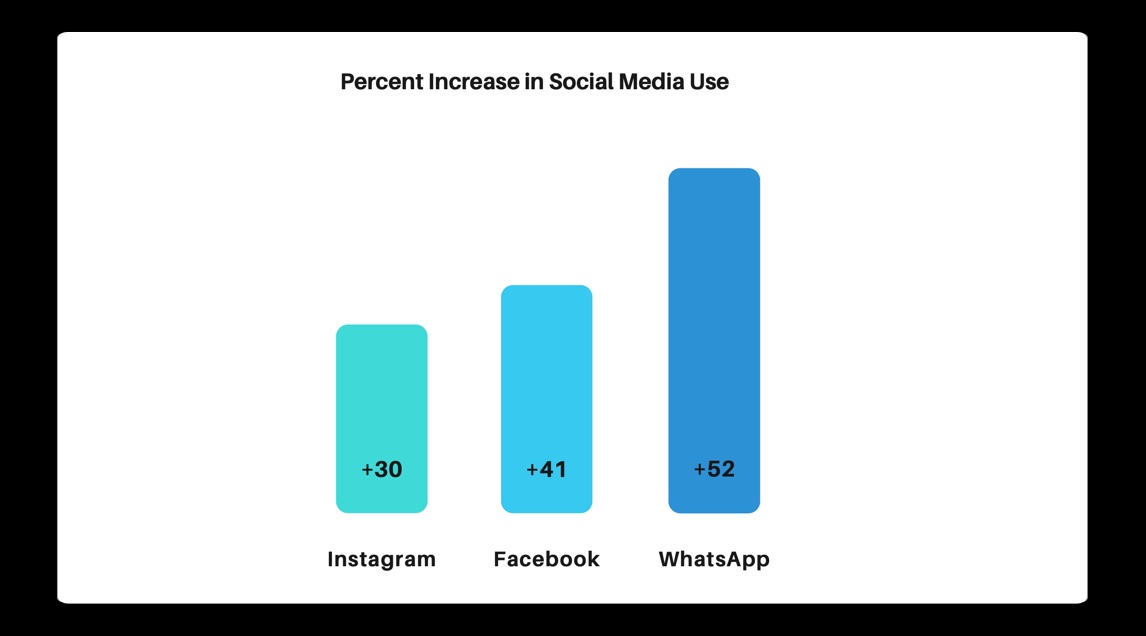
While consumption increases in all age groups, the adults ages 18-34 lead the way. WhatsApp, Facebook, and Instagram have all experienced a 40 percent increase in this age group.
3. National media channels are the most trusted information source — over government agencies and doctors — while social media ranks extremely low.
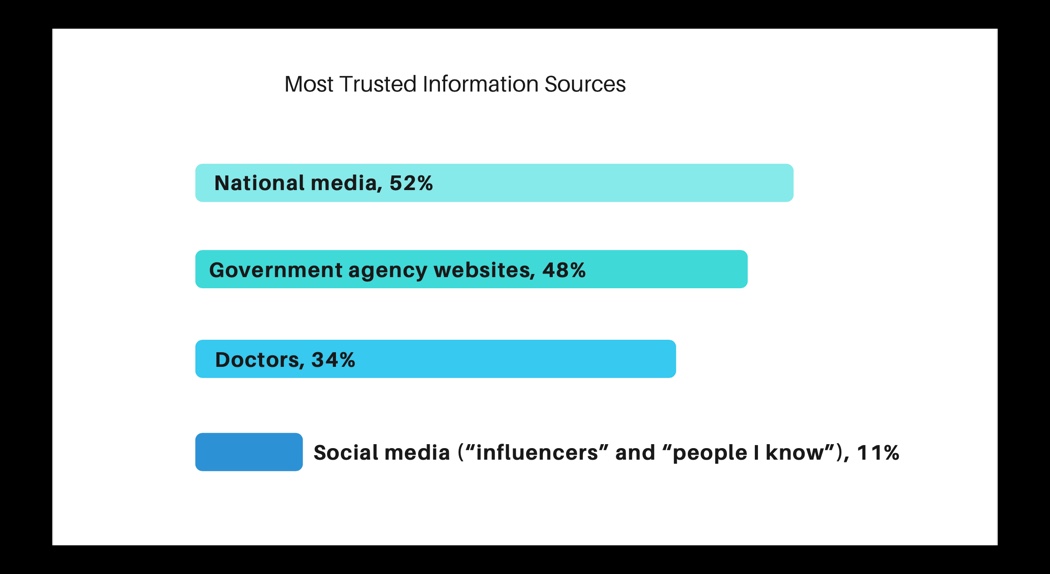
Viewer Perception Reflects the Times
The Kantar study includes an "image association" exercise that reveals consumers' current state of mind. Forty percent of respondents say memes and selfies are normally frivolous and funny, but now they're seen differently; 17 percent says that as people stay inside, they're increasingly dreaming of the outdoors; and 13 percent of respondents seek feelings of safety by getting cozy with pets and people they're close to.
Your Brand Needs to Reflect These Perceptions
Unsurprisingly, respondents are looking for brands to take a more authentic and comforting approach. More than three-quarters (77 percent) say they would like to see brands talk about how they're helpful in the new everyday life. Similarly, 77 percent would like brands to inform consumers about their efforts to face the situation. And, 70 percent would like brands to offer a reassuring tone.
But, there are two essential takeaways that may not be as obvious to advertisers:
- Focusing on staff welfare
- Not appearing to exploit the situation
People are experiencing negative emotions — fear of contracting the virus or anxiety related to job loss — and they want to see companies taking care of their employees. In fact, 78 percent of respondents say taking care of an employee's health is a priority, with 62 percent wanting to see flexible work hours implemented.
Three-quarters of respondents say that advertisers should not exploit the situation to promote a brand. But this is a balancing act; several top brands are having success by remaining true to who they are while refocusing their message to remain relevant during the pandemic.
Ford's "Built for Right Now" campaign is lending a hand to manage customer credit in these uncertain economic times, while Nike is encouraging people to use its apps to remain active and "keep playing" at home. Even Louis Vuitton was among the first to turn its perfume production lines into ones for hand sanitizer for health authorities.
On the flip side, marketers carelessly using the "coronavirus card," providing no real value or comfort to consumers, will likely damage their brand for the future.
Your Future Is Determined Now
Only 8 percent of respondents believe companies should stop advertising during this time. But what would the results look like if a brand pulls the plug on advertising, based on historical data?
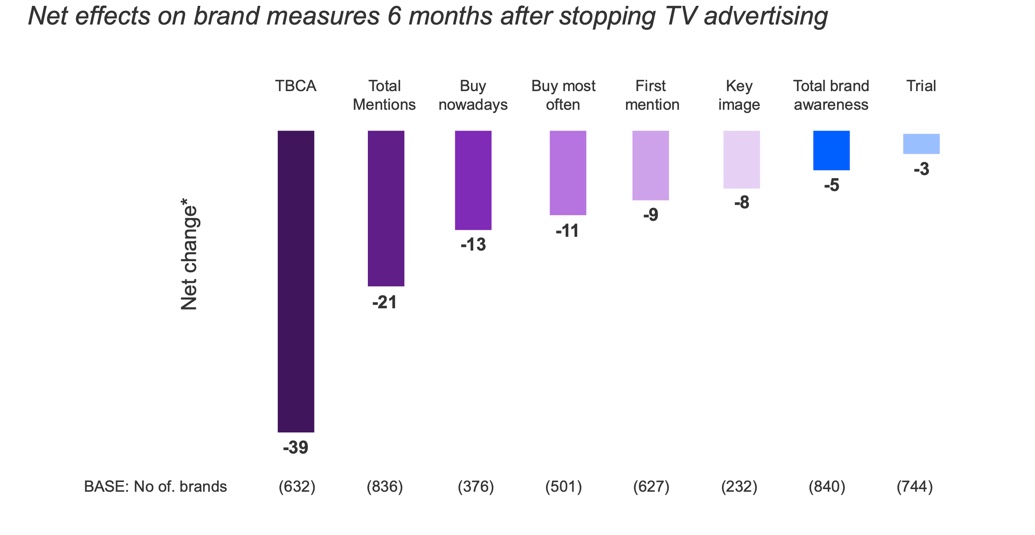
The Kantar study also shows that strong brands recovered nine times faster following the financial crisis of 2008. So, if history repeats itself, it's vital for brands to adjust their messaging to remain relevant and to stay in touch with consumers during the COVID-19 pandemic. After all, if you're there in the bad times, viewers will likely be with you in the good ones.
Don't stop now! Stay in the know on the impact of COVID-19 on the industry with more from MediaVillage.
Click the social buttons to share this story with colleagues and friends.
The opinions expressed here are the author's views and do not necessarily represent the views of MediaVillage.com/MyersBizNet.


